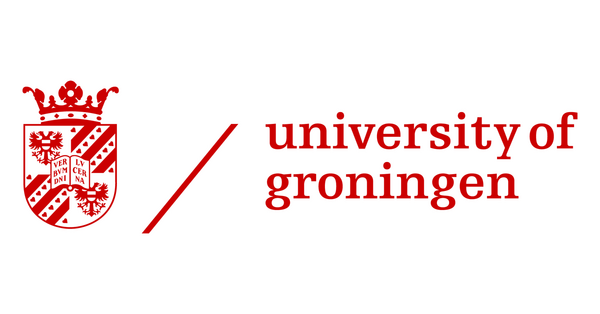Research Assistant/ Associate: Akili Mali study
Salary:
Research Assistant: £32,546 to £34,132 per annum (pro rata)
Research Associate: £35,116 to £42,882 per annum (pro rata)
Newcastle University is a great place to work, with excellent benefits. We have a generous holiday package; plus the opportunity to buy more, great pension schemes and a number of health and wellbeing initiatives to support you.
Closing Date: 23 April 2025
The Role
Your role will be Research Associate/Assistant for a global health project in Tanzania, ‘Akili Mali’. Akili Mali (Brain Wealth) is a community co-produced study in Tanzania with scale up to other African countries. It is led by Newcastle University, with University of Sheffield, University of East Anglia, University of Dar es Salaam (Tanzania) and University of Ibadan (Nigeria). The aims of Akili Mali are to develop and validate a culturally appropriate neuropsychological battery sensitive to early cognitive change in diverse populations of older people in Africa, to inform future dementia prevention studies.
The initial stakeholder development and pilot phases are complete, and we are seeking a Research Associate to work with our team on the main phase of data collection, where we will validate our co designed neuropsychological battery against gold standard dementia diagnosis in community and clinical settings and assess feasibility and acceptability of our current risk factor protocol. There are further opportunities for co-development and refinement of the protocol during this post.
What will i be doing?
This will involve working closely with a diverse international team including clinicians, lay members and NGOs to coordinate and analyse neuropsychological, clinical and environmental data. It also involves community co-production, and co design of protocols with community members, to set up a community feasibility cohort in three villages in the Kilimanjaro region of Tanzania. During the community data collection phase you will be coordinating and monitoring data collection and harmonisation with community partners. We are seeking to obtain ongoing funding for the study, so the post holder will be encouraged to work on funding applications individually or collectively.
What we are looking for
You will need to be a clear communicator, flexible and adaptable and have good organisational and problem solving skills. We are looking for a person with good statistical analysis skills in this or a related field. A focus of the neuropsychological study is language (acoustic and verbal fluency) and spatial navigation measures, so knowledge or experience of these areas will be useful but not essential. For the research associate role a PhD in a relevant field is needed (psychology/neuropsychology, mental health, dementia, epidemiology). Experience of global health or cross cultural work would be very useful, as would previous experience of working with communities, and knowledge and experience of cognitive and/or neuropsychological assessment.
To apply for the position, we will need your CV and a cover letter outlining how you are suitable for the role using evidence to highlight how you meet the essential criteria in the knowledge, skills and experience as listed in the job description.
This post is part time, fixed term for a period of 12 months, 40% WTE ( 14.80 hours per week)
Special circumstances (optional) -
The role does not necessarily involve travel, but there is the possibility of in-person fieldwork/field supervision depending on the needs of the study and wishes of the candidate and the presence of any health restrictions.
Since the data collection is international, the post may lend itself to remote working.
For informal enquiries contact: stella-maria.paddick@ncl.ac.uk
Find out more about the Faculty of Medical Sciences here: https://www.ncl.ac.uk/medical-sciences/
Find out more about our Research Institutes here: https://www.ncl.ac.uk/medical-sciences/research/institutes/
As part of our commitment to career development for research colleagues, the University has developed 3 levels of research role profiles. These profiles set out firstly the generic competences and responsibilities expected of role holders at each level and secondly the general qualifications and experiences needed for entry at a particular level.
Key Accountabilities
- Although working under the general guidance of an academic or Principal Investigator, the postholder will contribute ideas, including enhancements to the technical or methodological aspects of their studies, thus providing substantial 'added value'
- Develop and carry out the specified project using appropriate techniques and equipment as outlined in the personal requirements
- Determine appropriate methodologies for research, with advice and support where required
- Contribute to grant applications submitted by others and in time develop own research objectives and proposals for funding
- Begin to write, with appropriate support, proposals for individual research funding or, where funders do not permit this, contribute to the writing of collective bids
- Assess research findings for the need/scope for further investigations
- Contribute to the writing up of their research for publication and dissemination, either through seminar and conference presentations or through publications
- Present research findings, either at conferences or through publications in reputable outlets appropriate to the discipline
- May be involved in the supervision, with guidance, of final year undergraduate research projects and in providing support to postgraduate research students or Research Assistants
- Will need to work with the support staff and, on occasions, with undergraduate and postgraduate students, and interact intellectually with other academic members of the Institute.
- May contribute to events celebrating the public engagement of science/social sciences/humanities
- Develop an awareness of University structures, policies and procedures and relevant issues in the higher education, research, social and political environment
- Attend regular international team meetings, and report on study outcome progress as well as report any concerns to the team early
- Conduct data analysis independently and report regularly to the PI and wider team on findings and interpretation
- Work with international team members on joint analyses and publications in a knowledge sharing and capacity building framework.
- Develop working relationships with the international team and community advisory board of the study, document relevant discussions clearly and integrate community views into the protocol design and reports.
The Person
Knowledge, Skills and Experience
- Ability to work well as part of a team and rapidly acquire new skills
- Detailed subject knowledge in the area of research (cognition. Neuropsychology , dementia, ageing)
- Likelihood of advanced skills directly related to the research projects
- High level of analytical and problem-solving capability
- Ability to communicate complex information with clarity and to encourage the commitment of others
- Experience of research with clear transferable skills and some experience or awareness of the research environment
- Presentations at conferences and/or high-quality publications
- Previous experience and skills in relevant statistical analysis of neuropsychological/cognitive and other clinical data and/ or epidemiology
- Willingness to work in a capacity building context, sharing knowledge and skills with Global South colleagues
Desirable
- Experience of global health research and/or working in cross cultural settings
- Experience of working in community co-production
- Experience and knowledge of completing cognitive and/or neuropsychological assessments
Attributes and Behaviour
- Clear communicator and willing to communicate with and listen to a diverse team
- Organised and able to take a lead role in project coordination
- Flexibility in approach, and able to manage uncertainly
- Interest and enthusiasm in the subject area
Desirable
- Leadership skills in delivering a complex project
- Aim to further career in global health or neuropsychology, including assisting with or leading on funding applications
Qualifications
- A PhD in relevant area (required for appointment at Associate level) - e.g. psychology, mental health, ageing, epidemiology or a related field
- Good honours degree (or equivalent) with some subject knowledge in the relevant area (for appointment to Research Assistant level)
Newcastle University is a global University where everyone is treated with dignity and respect. As a University of Sanctuary, we aim to provide a welcoming place of safety for all, offering opportunities to people fleeing violence and persecution.
We are committed to being a fully inclusive university which actively recruits, supports and retains colleagues from all sectors of society. We value diversity as well as celebrate, support and thrive on the contributions of all of our employees and the communities they represent. We are proud to be an equal opportunities employer and encourage applications from individuals who can complement our existing teams, we believe that success is built on having teams whose backgrounds and experiences reflect the diversity of our university and student population.
At Newcastle University we hold a silver Athena Swan award in recognition of our good employment practices for the advancement of gender equality. We also hold a Race Equality Charter Bronze award in recognition of our work towards tackling race inequality in higher education REC. We are aDisability Confident employer and will offer an interview to disabled applicants who meet the essential criteria for the role as part of the offer and interview scheme.
In addition, we are a member of the Euraxess initiative supporting researchers in Europe.
Requisition ID: 27952






